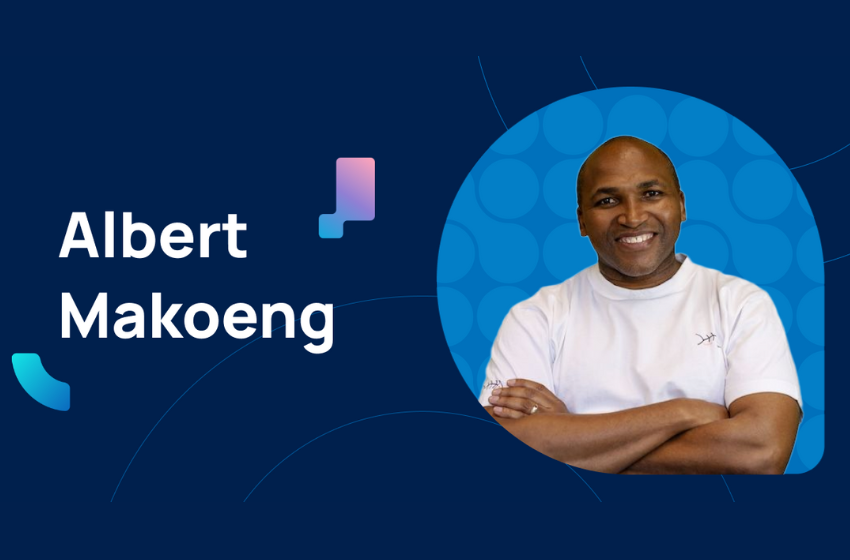
At the current rate of progress, it will take until 2158, which is roughly five generations from now, to reach full gender parity, according to data from the World Economic Forum.
Significant barriers to gender equality remain, yet with the right action and support, positive progress can be made for women everywhere.
Business leaders from across Africa share their perspectives on what needs to be done to achieve full gender equality.
Spearheading the future for women in tech
The biggest challenge that’s hindering women to develop their career progression, especially in tech, is their under-representation in new fields like AI. This is according to Linda Saunders, Salesforce Country Leader and Senior Director Solution Engineering Africa.
“Across all sectors, systems need to become more welcoming and more equitable. To open up the technology industry specifically, the role of business to address the issue of equity should begin with education. Encouraging more women to enter the fields of science, technology, engineering and maths (STEM) will help businesses address women’s under-representation in emerging roles such as cloud computing, engineering, data and AI,” says Saunders.
“A successful outcome would be reaching a point where we no longer need to talk about girls or women in ICT as a specific focus area. While we are starting to see a shift, we need to keep nurturing potential, interrogating how to make ICT careers more appealing and accessible to girls and women, while supporting them on their career journeys.”

Digital inclusion is an economic necessity
Digitisation and emerging technologies enable some of Africa’s most transformative opportunities. Yet, women continue to lag in accessing quality education and employment in the digital economy. This is according to Lohini Moodley, Communications, Media and Technology Partner at Oliver Wyman.
The 2025 Representation Matters Report by Oliver Wyman Forum highlights that increasing female workforce participation could boost global GDP by nearly 20%. Women’s leadership in business and policymaking drives economic opportunities, making inclusion not just a social imperative but an economic necessity.
However, digital inclusion remains a major barrier. Research from GSMA shows that nearly 200 million people in Sub-Saharan Africa lack access to mobile broadband. The organisation’s Mobile Gender Gap report for 2023 further shows that women in the region are 36% less likely than men to adopt mobile internet.
“Key barriers such as affordability, digital illiteracy and infrastructure continue to limit women’s participation in the digital economy. To close this gap, the telecom sector should collaborate with governments and private stakeholders to drive inclusive solutions- affordable data, access to affordable smartphones, targeted digital literacy programmes, and infrastructure investments that connect underserved communities,” says Moodley.
“Equally crucial is women’s leadership in telecoms and technology. Diverse leadership fosters innovation and ensures solutions are built for everyone. By prioritising mentorship, skills development, and equitable hiring, we can accelerate digital transformation in a way that includes and empowers women.
“The digital economy holds immense potential to close gender disparities – but only if we act now to prevent the exclusion of women.”

Women underrepresented in tech leadership roles
The digital economy is advancing rapidly; however, women continue to be underrepresented as innovators and decision-makers in technology.
Huawei, Vanashree Govender, Media Relations and Communications Manager for Huawei South Africa, says this hinders progress and stifles potential. “A more inclusive future requires targeted investment in female talent, particularly within STEM fields. However, achieving gender equality extends beyond education; it depends on expanding access, promoting mentorship, and creating leadership opportunities.
“When barriers to participation are removed, more women can step into roles that shape the future. At Huawei, we recognise that bridging the gender gap in technology is essential for fostering a truly inclusive digital future. We equip young women with vital skills in AI, cloud computing, and cybersecurity through initiatives such as ‘Women in Tech Digital Skills Training Programme’ and our ‘Huawei ICT Academy programme’.”
“Collaborating with universities and industry provides clear career pathways, ensuring that women are not merely part of the workforce but are positioned as leaders driving innovation. Innovation thrives through diversity, and empowering women with the tools and platforms to lead will catalyse meaningful change,” adds Govender.
Share via:




















